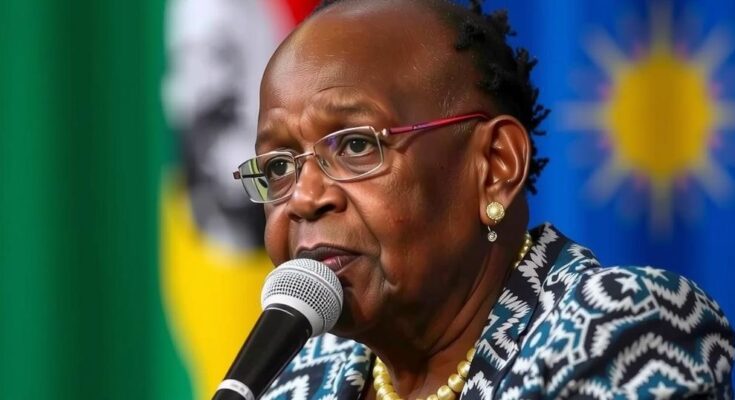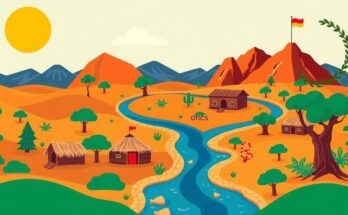Botswana’s President Mokgweetsi Masisi has conceded defeat in the recent elections, signaling the end of nearly sixty years of BDP rule. Preliminary results indicate the opposition coalition, UDC, led by Duma Boko, secured a parliamentary majority. Masisi expressed respect for the electoral outcome and commitment to support the incoming administration. The shift reflects voter discontent due to economic pressures exacerbated by a downturn in the diamond market.
Botswana’s President Mokgweetsi Masisi has acknowledged his election defeat as preliminary results reveal that his party, the Botswana Democratic Party (BDP), has lost its majority in Parliament, marking the end of a near sixty-year reign. Recent reports from both the state radio and the independent Mmegi newspaper indicate that the BDP faced a significant loss in the electoral contest, particularly as the opposition coalition, Umbrella for Democratic Change (UDC), came out on top with its leader, Duma Boko, poised to assume the presidency. Although Mr. Boko has yet to publicly address the election outcome, President Masisi addressed the media, stating his respect for the people’s choice: “Although I wanted to stay on as your president, I respect the will of the people and I congratulate the president-elect. I will step aside and I will support the new administration.” Analysts had predicted a competitive election, yet many expected the BDP to prevail given its longstanding dominance in Botswana since the nation gained independence from Britain in 1966. The current tallies show that the UDC has won 25 out of 36 contested constituencies, with only one going to the BDP. To secure a parliamentary majority, at least 31 constituencies are necessary. Botswana has traditionally benefitted from political stability and relative prosperity, bolstered by its diamond wealth which provides free healthcare and education to its citizens. However, recent downturns in the diamond sector have strained the economy, underscoring the challenges facing the new administration.
In the context of Botswana’s political landscape, the recent election represents a significant shift in power after decades of governance by the Botswana Democratic Party (BDP). Since achieving independence in 1966, the BDP has maintained its position as the ruling party, shaping the nation’s policies and development. However, economic challenges, particularly linked to fluctuations in the diamond market, have placed pressure on the government, highlighting the necessity for economic diversification. This election is seen as a pivotal moment, signaling the electorate’s desire for change amidst ongoing economic struggles and an opportunity for the opposition to introduce new policies and governance approaches.
The recent elections in Botswana have culminated in a historic transition of power, as President Mokgweetsi Masisi has conceded defeat, marking the end of a prolonged era of BDP governance. This change reflects the electorate’s responsiveness to economic challenges and their willingness to explore new leadership under the UDC. With the opposition poised to take over, the nation stands at a crossroads, facing the imperative of addressing its economic vulnerabilities while maintaining the political stability that has characterized Botswana for decades.
Original Source: www.theguardian.com




